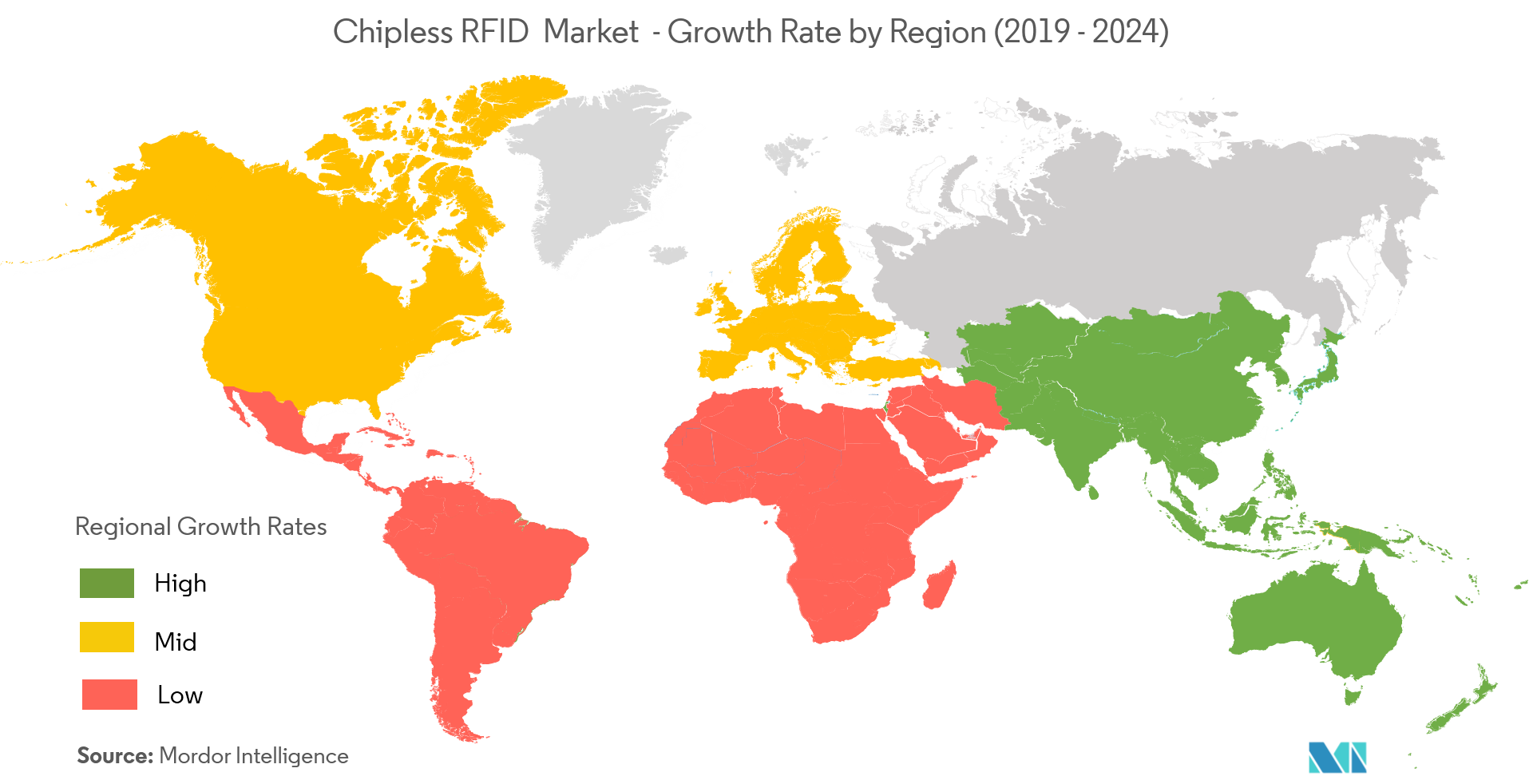Market Trends of Chipless RFID Industry
This section covers the major market trends shaping the Chipless RFID Market according to our research experts:
Healthcare Sector to Contribute Significantly to the Market Growth
- For e-healthcare, chipless 2GRFID-Sys integrates diverse wireless networking technologies, such as wireless body area networks and wireless LANs, which use body sensors for monitoring the medical conditions of a patient. This helps in diagnosis assistance and action handling.
- Furthermore, to keep a track on an ambulatory patient who might face a critical situation while traveling to a location outside his/her hometown, chipless 1G-RFID-Sys are being employed in the patient’s ID. These chipless 1G-RFID-Sys tags help to identify the emergence of the situation from the patient’s medical history.
- Moreover, due to the lack of vigilance and advocacy by healthcare providers, lack of legal protection and technology to identify genuine drugs, there is an increase in drug counterfeiting. As traditional RFID with barcode technology cannot prevent counterfeiting drugs, in many healthcare sectors the R&D department is putting efforts to produce chipless RFID devices, which are cheap and could be used to combat this universal burning issue of the healthcare industry.
- As the pharmaceutical sector is moving toward contract packaging, significant efforts are being made by packaging vendors, like BASF, Avery Dennison Group, and Constantia Flexibles Group, in smart packaging levels that would prompt serialization. With such industry focus, the future of chipless RFID is set to be prominent.

Asia-Pacific Expected to Register the Fastest Growth
- In China, many companies are investing to revolutionize the retail industry in the country. For instance, in April 2018, Tencent showcased the working of Unmanned retail wherein if a consumer grabs a product from the shop and walks out of the store, the RFID chip will scan the item and sends the bill to the customer’s WeChat application.
- In addition, Japan is also planning to introduce next-generation in-store experience through the introduction of RFIDs. For instance, in April 2017, Seven-Eleven Japan announced the introduction of next-generation self-checkout.
- Further, in India, the rise in per capita income and the increasing requirements for appliances, such as smartwatches is propelling chipless RFID market. The growing adoption of thin-film battery in India, which needs portable electronic appliances by the application of printed and chipless RFID is penetrating the market growth.


